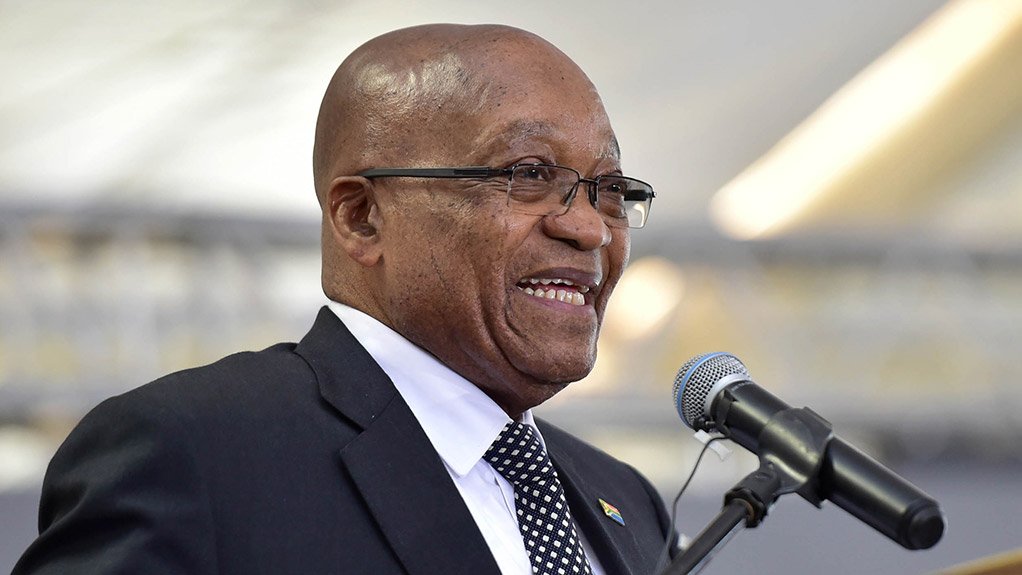Jacob Zuma, the former president who brought South Africa’s renewable-energy programme to a halt in 2016, announced that a Belarus trade association will list the first carbon credits on a newly created exchange in Zimbabwe.
The Belarus African Foreign Trade Association, of which Zuma is a board member, has allocated 2-million carbon credits to initiate trade in the offsets on the Africa Voluntary Carbon Credits Market, he said on Friday.
“I have the memorandum of intent of these carbon offsets which have been certified and validated,” Zuma said at a carbon-credit conference in Victoria Falls, Zimbabwe. “This is our pledge to kick-start the process.”
In his speech on Friday, Zuma gave no indication of why he was representing a Belarus-backed organization or where the association accessed the carbon offsets. Zimbabwe has close ties with Belarus. President Alexander Lukashenko visited the African nation earlier this year.
A single carbon credit represents a ton of climate-warming carbon dioxide or its equivalent that’s either removed or prevented from entering the atmosphere. The credits are bought by companies to offset their greenhouse gas emissions as tighter legislation forces them to do more to slow global warming.
The global trade in carbon offsets is projected to grow to as much as $1-trillion within 15 years from $2-billion now, according to estimates from BloombergNEF.
Zuma, apart from presiding over a United Nations Framework Convention on Climate Change in 2011, has no known track record in the carbon credits industry, but had close ties with Russia, an ally of Belarus, during his nine-year rule that ended in 2018.
His daughter, Duduzile Sambudla-Zuma, who accompanied him to the conference, was placed at the center of a Russia-backed Twitter campaign to bolster support for its invasion of Ukraine, according to research commissioned and funded by the Centre for Information Resilience.
In 2016, when Zuma was in power, South Africa halted one of the world’s most successful programmes to attract private investment into wind and solar power and, under Zuma’s direction, unsuccessfully pursued a plan to have Russian companies build a nuclear power plant in South Africa.
Since being ousted by South Africa’s governing African National Congress as its leader, Zuma has spent much of his time fighting legal battles related to a charge that he benefited from an arms deal in the 1990s. He has spent time in prison for contempt of court after refusing to testify to a judicial commission of inquiry into state corruption. He has denied wrongdoing.
Zuma, who arrived at the Zimbabwe conference on Wednesday and was seen wearing a brightly patterned shirt as he dined with his daughter, spoke passionately about the effects of climate change on Africa as he gave a speech.
“Climate change is a global challenge that does not respect national borders,” he said. “Emissions affect people everywhere. It does not pick and choose any type of person. It attacks all type of persons.”
He said the new carbon market, part of the dollar-based Victoria Falls Securities Exchange, was an “Afro-centric” solution to climate change.
The exchange is in talks with the Zimbabwean government and a partner to launch trade in the offsets, Justice Bgoni, the exchange’s chief executive officer, said by text message. He didn’t identify the partner.
EMAIL THIS ARTICLE SAVE THIS ARTICLE
To subscribe email subscriptions@creamermedia.co.za or click here
To advertise email advertising@creamermedia.co.za or click here











